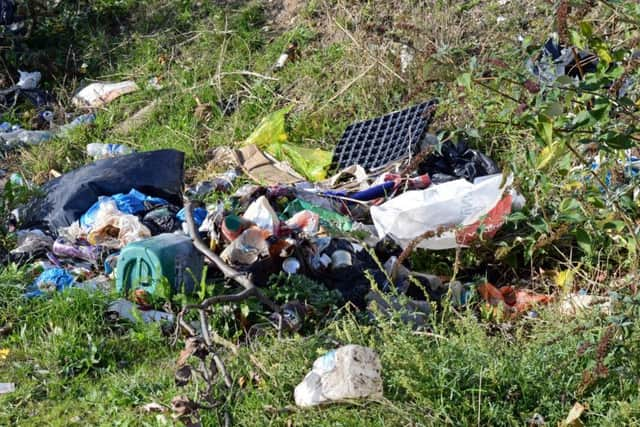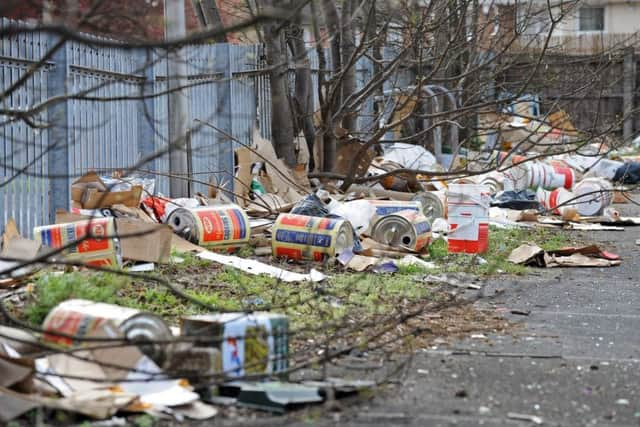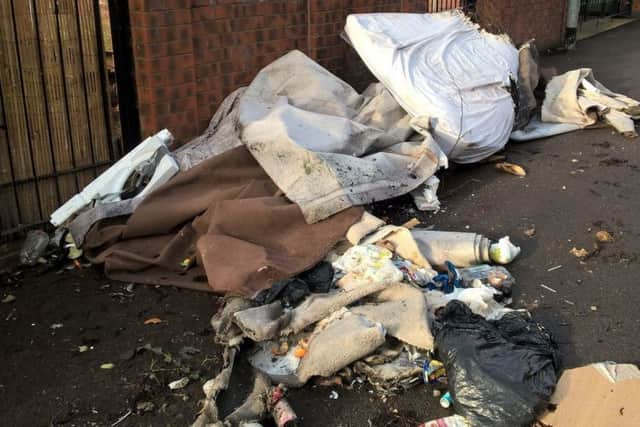Why the scourge of fly-tipping needs a much more serious response from Ministers: Jayne Dowle
For at least a decade now, campaigners, including the Keep Britain Tidy group and the National Farmers’ Union, commentators (including me) and concerned council tax-payers up and down the country have been complaining about the rise in fly-tipping.
Largely, this has been met with a resounding lack of interest from those with the power to make a difference. Why is this? I’ll tell you why. It’s because that for the most part, Ministers don’t actually have to see the mess illegal fly-tippers are making of our countryside, and urban areas too, for that matter.


Advertisement
Hide AdAdvertisement
Hide AdThey don’t have to brake suddenly because there’s a battered television in the middle of the road, or steer their dogs sharply away from an unsavoury pile of horrors lurking in the undergrowth.
Perhaps they should live where I do; it’s commonplace for the minor road through the woods near us to be scarred with detritus, causing danger to traffic and cyclists.
Then there was that time we found a case of discarded drugs paraphernalia in the layby opposite our house. Just what does a responsible citizen do with such items?
We’ve complained many times to the council and informed the local community police officer, but the response has hardly been dynamic.


Advertisement
Hide AdAdvertisement
Hide AdWhen we found the drugs case, the PCSO told us to simply chuck it in the bin. What if a child had come across it? Doesn’t anyone care?
When we became sick of seeing mess littering the woods, we phoned the local council, who informed us that due to ‘anti-social behaviour’ patrols had been curtailed. What is fly-tipping if it is not ‘anti-social behaviour’?
Did the authorities assume that if they ignored it, the menace would eventually go away?
Clearly, this misjudgement has not paid off.


People are becoming angry, very angry.
As with so many other issues, fly-tipping has turned into a prime case study in buck-passing; central government puts the onus on cash-strapped local government, the police often say it’s beyond their powers of jurisdiction and the Environment Agency can’t keep up with the plague of offences.
Advertisement
Hide AdAdvertisement
Hide AdNew research by the BBC Data Unit suggests that since 2012, in Yorkshire alone, there have been at least 28,000 major fly-tipping incidents.
This figure has risen by a staggering 150 per cent in eight years. If this was any other offence, the Home Office would be all over it.
However, this is not just irresponsible individuals chucking their old kitchen units over a wall; it’s dangerous organised criminals on the make, who con innocent people. There’s alarming evidence of these organised criminal gangs who make money by charging unwary individuals and organisations for rubbish removal and then leave it in a field full of livestock or the middle of a beauty spot.
All the evidence suggests that there is a serious lack of official understanding about the severity of the problem. Nationally, just two £50,000 fines, the maximum amount allowed by law in a magistrates’ court, were handed out between 2018 and 2019.
Advertisement
Hide AdAdvertisement
Hide AdMuch more effort needs to go into identifying and arresting criminals and making an example of them. As North Yorkshire Police and Crime Commissioner Julia Mulligan, who is also chair of the National Rural Crime Network, rightly points out, not only does fly-tipping make law-abiding people feel less safe in their blighted communities, its connection with serious organised crime has knock-on consequences. No-one wants it on their doorstep.
It’s important to know that all is not lost to the criminals; the Welsh government supports Fly-tipping Action Wales, made up of 50 partners including 22 local authorities, the NFU, the fire service and police forces.
Since the scheme launched, in 2006, fly-tipping incidents on public land have been reduced by more than a third. However, this scale of action takes commitment and focus.
Therefore, it should be very near the top of the to-do list for the new Secretary of State for the Environment, George Eustice, a former fruit farmer from Cornwall. Unlike his London-born predecessor, the hapless Theresa Villiers, he does have some direct understanding of rural affairs.
We can only live in hope.